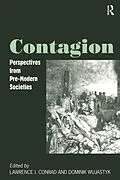Contagion - even today the word conjures up fear of disease and plague and has the power to terrify. The nine essays gathered here examine what pre-modern societies thought about the spread of disease and how it could be controlled: to what extent were concepts familiar to modern epidemiology present? What does the pre-modern terminology tell us about the conceptions of those times? How did medical thought relate to religious and social beliefs?
Autorentext
Lawrence I. Conrad, Dominik Wujastyk
Inhalt
Contents: Introduction; China: Epidemics, weather and contagion in traditional Chinese medicine, Shigehisa Kuriyama; Dispersing the foetal toxin of the body: conceptions of smallpox aetiology in pre-modern China, Chia-Feng Chang; The threatening stranger: Kewu in pre-modern Chinese paediatrics, Christopher Cullen; India: Notions of contagion? in classical Indian medical texts, Rahul Peter Das; Does ancient Indian medicine have a theory of contagion?, Kenneth G. Zysk; Middle East and Europe: Old Testament leprosy?, contagion and sin, Elinor Lieber; Did the Greeks have a word for it?, Vivian Nutton; A 9th-century Muslim scholar's discussion of contagion, Lawrence I. Conrad; Contagion and leprosy: myth, ideas and evolution in medieval minds and societies, François-Olivier Touati; Index.
